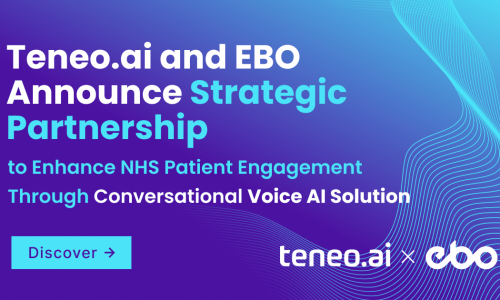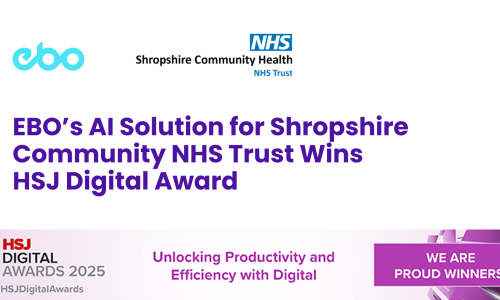As the demand for timely healthcare grows, AI is stepping in to revolutionise the experience. By engaging patients with friendly, human-like conversations, AI transforms the waiting process within NHS into something reassuring, validating, and genuinely patient-centered. This is more than just a solution for clearing backlogs—it’s about enhancing every interaction with the healthcare system, making it smoother and more empathetic. Discover how cutting-edge AI is not only streamlining waiting lists but also crafting a healthcare experience that patients truly value.
The Problem
NHS waiting lists are at an all-time high, with 7.6 million patients in line for treatment. The need for innovative technology to manage these lists is urgent. [1] Key statistics highlight the issue:
- 66.7% increase in NHS waiting lists since 2020
- 3.13 million patients have been waiting for over 18 weeks.
The median waiting time is now 14.3 weeks, nearly double the pre-COVID median of 7.5 weeks.
Staff shortages and high turnover further complicate the situation, making it difficult for NHS Trusts to keep up.
The Impact
Current traditional methods of managing waiting lists are inefficient, with a significant portion of patients no longer needing treatment.
[2] For the year 2023-24, approximately 15.4 million general practice appointments were missed across the NHS in the UK, resulting in a financial impact of over £216 million annually.
Addressing this issue is critical for the success of the Elective Recovery Plan, which relies on maximising the use of available appointments to reduce waiting times and manage the backlog effectively.
The Solution
It’s not just about cutting down the backlog—it’s about creating a smoother, more empathetic patient experience while easing the workload on administrative staff.
EBO’s AI-powered solution offers an efficient and seamless approach to managing waiting lists. Our Virtual Assistant (VA) automates the entire validation process by directly engaging with patients. It confirms whether they still need their appointments, records their responses in the Electronic Patient Record (EPR), and keeps them informed before and after their appointments. This is done through natural, two-way conversations powered by Natural Language Processing (NLP).
The Result
Our solution significantly reduces waiting lists, missed appointments, and referral-to-treatment backlogs. It also empowers healthcare providers with real-time insights into patient behavior through sentiment analysis, displayed on visual dashboards that support informed decision-making.
Patients appreciate the human-like interaction, and the process results in cost savings, happier patients, and more satisfied staff. Plus, our solution is results-driven with no minimum contract, ensuring you only pay for what works.
Want to see how our AI solution can transform your waiting list management? Discover EBO’s success story with Betsi Cadwaladr University Health Board (BCUHB).
Customer Story
An AI-Driven Solution for Betsi Cadwaladr University Health Board
EBO developed an AI-driven waiting list validation tool for Betsi Cadwaladr University Health Board (BCUHB) to validate patient waiting lists in a cost-effective manner at scale.
By automating up to 76% of their validation process, BCUHB significantly reduced administrative costs and elevated patient satisfaction.
Here’s how it worked:
Patients were engaged through automated, digital conversations initiated via SMS, directing them to a virtual chat at their convenience. For those needing additional contact, responses were captured alongside virtual interactions, ensuring no detail was missed. This seamless integration with WPAS meant reduced admin overhead and better communication standards.
The impact was clear:
BCUHB achieved accurate, timely appointments and streamlined operations, all while delivering a superior digital experience.
[EBO] more than rose to the challenge. It felt like a true development partnership with staff from both EBO and BCU forming a cohesive team

Danielle Edwards
- Head of Digital Transformation
- Betsi Cadwaladr University Health Board



